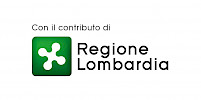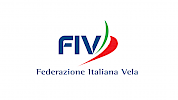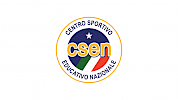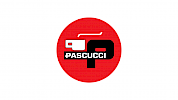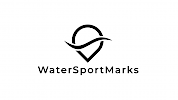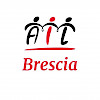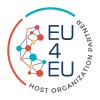
Organizational and Control Model for Sports Activities
This organizational and control model of sporting activity is drawn up by Univela Sailing limited liability amateur sports company (hereinafter, the Association), as provided for in paragraph 2 of Article 16 of Legislative Decree no.
no. 39 of 28 February 2021 and on the basis of the guidelines published by the Italian Sailing Federation.
It applies to anyone who participates in any function or title in the activity of Univela Sailing, a limited liability amateur sports company, independent of the sporting sailing discipline practiced.
This document is valid for four years from the date of approval and must be updated whenever necessary in order to incorporate any amendments and additions to the Fundamental Principles issued by CONI, any further provisions issued by the National Council of the C.O.N.I. and the recommendations of the CONI Permanent Observatory for Safeguarding Policies.
This document aims to promote an inclusive culture and environment that ensure the dignity and respect for the rights of all members and members, in particular minors, guaranteeing equality and fairness and at the same time protecting the physical and moral integrity of all members of the Association / Society.
This organizational and control model of sports activity must be published on the homepage of the Association's website.
This model supplements and does not replace the Regulations for the protection of members from abuse and discriminatory conduct of the Italian Sailing Federation.
Rights and obligations
All members are granted the fundamental rights:
- to dignified and respectful treatment in every relationship, context and situation in the associative sphere;
- protection from all forms of abuse, harassment, gender-based violence and any other condition of discrimination, regardless of ethnicity, personal beliefs, disability, age, gender identity, sexual orientation, language, political opinion, religion, property, birth, physical, intellectual, relational or sporting condition;
- that health and psycho-physical well-being are guaranteed as prevailing over any sporting result.
Those who take part, in any capacity and in any function and/or role, in sporting activities, directly or indirectly, are required to comply with all the provisions and requirements to protect the aforementioned rights of members and members. Technicians, managers, members and all other members are required to be aware of this model, the Code of Conduct for the protection of minors and for the
prevention of harassment, gender-based violence and any other condition of discrimination and the Regulations for the protection of members from abuse and discriminatory conduct of the Italian Sailing Federation.
Risk prevention and management Relevant behaviours
For the purposes of this model, the following are relevant conducts:
- psychological abuse: any unwanted act, including disrespect, confinement, oppression, isolation or any other treatment that may affect the sense of identity, dignity and self-esteem, or such as to intimidate, upset or alter the serenity of the member, even if perpetrated through the use of digital tools;
- physical abuse: any conduct consumed or attempted (including beatings, suffocation, slaps, kicks or throwing objects), which is capable in a real or potential sense of directly or indirectly causing damage to health, trauma, physical injury or that damages the psychophysical integrity of the member/member. These acts can also consist in inducing a member to carry out (in order to better sports performance) an inappropriate physical activity or forcing injured athletes or in any case not in physical condition to perform sports to train. This also includes those behaviors that favor the consumption of alcohol, substances prohibited by current regulations or doping practices; - sexual harassment: any unwanted and unwelcome act or behavior of a sexual nature, whether verbal, non-verbal or physical, which involves annoyance or disturbance. Such acts or behaviors may also consist of making sexually explicit remarks or allusions, as well as unwanted or unwelcome requests with a sexual connotation, or phone calls, messages, letters or any other form of communication with a sexual content, even with an intimidating, degrading, humiliating or denigrating effect;
- sexual abuse: any behavior or conduct having a sexual connotation, without contact or with contact, and considered unwanted, or whose consent is coerced, manipulated, not given or denied. It can also consist of forcing a member/member to engage in inappropriate or unwanted sexual conduct, or observing the member in inappropriate conditions and contexts;
- negligence: the failure of a manager, technician or any member to intervene, also due to the duties deriving from his role, who, upon becoming aware of one of the events, or behavior, or conduct, or act referred to in this model, fails to intervene causing damage, allowing damage to be caused or creating an imminent danger of damage. It can also consist of the persistent and systematic disinterest, or neglect, of the physical and/or psychological needs of the member/member;
- neglect: failure to meet basic physical, medical, educational and emotional needs;
- religiously motivated abuse: the impediment, conditioning or limitation of the right to freely profess one's religious faith and to exercise its worship in private or in public, provided that it is not a matter of rites contrary to morality;
- bullying, cyberbullying: any offensive and/or aggressive behavior that a single individual or several individuals may implement, personally, through social networks or other communication tools, either in isolation or repeatedly over time, to the detriment of one or more members with the aim of exercising power or dominion over the member/member. They can also consist of repeated prevarication and overpowering behaviors aimed at intimidating or upsetting a member/member that result in a condition of discomfort, insecurity, fear, exclusion or isolation (including humiliation, offenses regarding physical appearance, verbal threats, including in relation to sports performance, dissemination of unfounded news, threats of physical repercussions or damage to objects owned by the victim);
- discriminatory behaviour; any behaviour aimed at achieving a discriminatory effect based on ethnicity, physical characteristics, gender, socioeconomic status, sporting performance and athletic ability, religion, belief, disability, age or sexual orientation. Relevant behaviors can occur in any form and manner, including in person and through computer methods, on the web and through messages, emails, social networks and blogs etc.
Responsible against abuse, violence and discrimination
The Association appoints a Person in charge against abuse, violence and discrimination, with the aim of preventing and combating any type of abuse, violence and discrimination against members/members as well as to ensure the protection of the physical and moral integrity of sportsmen.
The person in charge against abuse, violence and discrimination, must be an autonomous subject and possibly independent from the corporate offices and from relations with coaches and technicians, will be selected from among those who have experience in the sector, communication skills and ability to manage delicate situations. He must be appropriately trained and participate in the information seminars organized by the Association and Sports Federation to which he belongs. Before the appointment, the certificate of the criminal record must be acquired. In fact, those who have suffered a criminal conviction, even if not definitive, for non-culpable crimes cannot be designated as responsible.
In any case, the safeguarding officer within sports clubs/associations carries out supervisory functions regarding the adoption and updating of models and codes of conduct, as well as collecting any reports of
conduct relevant for the purposes of safeguarding policies, being able to also carry out inspection functions.
The Safeguarding Officer will be required to raise awareness among the members of the association on safeguarding issues and will be required to cooperate with the competent authorities.
The Safeguarding Officer will have to define and publicize clear communication channels for members of the sports association to report cases of abuse or mistreatment and establish procedures for recording and managing reports received.
The Safeguarding Officer must guarantee the confidentiality and confidentiality of information regarding cases of abuse or mistreatment, being required to treat sensitive information confidentially and with respect for the privacy of the persons involved.
The Board of Directors may suspend or remove the safeguarding officer in the event of non-compliance with the requirements or violation of the association's policies relating to the protection of minors.
Use of the Association's spaces
Access to the premises and spaces managed or used by the Association during training and trial sessions of underage members/members must always be guaranteed to those who exercise parental responsibility or to those entrusted with the care of the athletes or their delegates. At the facilities managed or used by the Association, all the necessary measures must be prepared to prevent any risk situation.
During training or regatta sessions, access to the locker rooms is not allowed to external users or parents/carers, unless authorized by a technician or manager and, in any case, only for any assistance to members under 6 years of age or with motor or intellectual/relational disabilities.
In case of need, without prejudice to the timely request for intervention to the medical rescue service if necessary, access to the infirmary is allowed to the social doctor in his absence, to a technician trained in first aid procedures exclusively for the procedures strictly necessary for first aid to the injured person. The door must remain open and, if possible, at least one other person must be present (athlete, technician, manager, collaborator, etc.).
Travel
In the case of trips or activities that include an overnight stay, the athletes must be reserved rooms, possibly shared with athletes of the same kind, different from those in which the technicians, managers or other accompanying persons will stay, except in the case of close kinship between the athlete and the accompanying person.
During trips of any kind, it is the duty of accompanying athletes to supervise accompanied athletes, especially if they are minors, implementing all the necessary actions to guarantee their physical and moral integrity and avoid any behaviour relevant to the purposes of this model.
Privacy Policy
All athletes (or exercising parental authority), technicians, managers, collaborators and members of the Association at the time of registration/membership, and in any case whenever personal data is collected, must be submitted the information on the processing of personal data pursuant to art. 13 of European Regulation 679/2016 (GDPR).
The data collected must be managed and processed in the manner described in the aforementioned Regulation and in any case only on the basis of the necessity for the execution of the contract to which the data subjects are parties, for the fulfilment of a legal obligation or on the basis of consent. In particular, special categories of personal data (such as racial or ethnic origin, political opinions, religious or philosophical beliefs, or trade union membership, as well as genetic data, biometric data for the purpose of uniquely identifying a natural person, data concerning health or data concerning a person's sex life or sexual orientation) may only be processed with the free and express consent of the data subject, expressed in writing, except in cases of compliance with legal obligations and regulations. The Association, without prejudice to the prior consent collected at the time of registration/membership, may publish on its communication channels photographs depicting the members produced during the training and regatta sessions, but the production and publication of images that may cause embarrassment or danger for members is not permitted. The documentation, both paper and digital, collected by the Association containing personal data of members, suppliers or any other subject, must be kept ensuring that it is inaccessible to persons not authorized to process the data. In the event of loss, cancellation, accidental disclosure, data breach, etc., timely notice must be given to the data subject and, at the same time, to the owner and processor of personal data. The Italian Data Protection Authority must also be promptly notified if the personal data breach involves a risk to the rights and freedoms of natural persons.
All persons authorised to process personal data must be adequately trained and must implement all the behaviours and procedures necessary to protect the personal data of the data subjects, especially those falling within the special categories of personal data.
Inclusion
The Association/Society guarantees all its members/members of other amateur sports associations and clubs equal rights and opportunities, regardless of ethnicity, personal beliefs, disability, age, gender identity, sexual orientation, language, political opinion, religion, property, birth, physical, intellectual, relational or sporting status.
The Association/Society undertakes, also through agreements, conventions and collaborations with other amateur sports associations or clubs, to guarantee the right to sport to athletes with physical or intellectual-relational disabilities, integrating these athletes, including those who are members of other amateur sports associations or clubs, into the group of athletes registered with the Association/Society of their own age. The Association/Society undertakes to guarantee the right to sport even to athletes who are disadvantaged from an economic or family point of view, encouraging the participation of these athletes in the activities of the association also through the activation of ad hoc initiatives and/or through agreements, conventions and collaborations with third sector entities operating in the area and in the neighboring municipalities.
Combating harmful behaviour and managing reports of harmful behaviour.
In the event of alleged harmful behaviour, by members/members or third parties, towards other members, especially if they are minors, it must be promptly reported to the Head of Abuse, Violence and Discrimination by verbal communication or by e-mail to the email address safeguarding@campioneunivela.it
The access keys to this email address will be in the exclusive possession of the Data Processor.
In the event of serious harmful behavior, the Association must notify the police of the facts of which it has become aware.
The Association must ensure the adoption of appropriate measures that prevent any form of secondary victimization of members who have in good faith:
- lodged a complaint or report;
- expressed the intention to file a complaint or a report;
- assisted or supported another member in submitting a complaint or report;
- giving testimony or hearing in proceedings relating to abuse, violence or discrimination;
- taken any other action or initiative relating to or inherent in the safeguarding policies.
- Inform the Safeguarding Office of the Federation to which they belong and the Judicial Bodies if the violations fall within the federal competence
Disciplinary system and sanctioning mechanisms
By way of example and not exhaustively, the conduct that can be sanctioned can be traced back to:
- culpable failure to implement the measures indicated in this Organizational and Control Model of sports activity;
- wilful violation of the measures indicated in this Organizational and Control Model of sports activity, such as to compromise the relationship of trust between the perpetrator and the Association/Company as it is unequivocally preordained to commit a crime;
- violation of the measures put in place to protect the whistleblower;
- making reports with intent or gross negligence that prove to be unfounded;
- violation of the obligations to provide information to the Association/Company;
- violation of the provisions concerning information, training and dissemination activities towards the recipients of this model;
- acts of retaliation or discrimination, direct or indirect, against the whistleblower for reasons linked, directly or indirectly, to the report;
- failure to apply this disciplinary system.
The penalties that can be imposed are diversified according to the nature of the legal relationship between the offender and the Association/Company, as well as the importance and seriousness of the violation committed and the role and responsibility of the perpetrator.
The penalties that can be imposed are diversified taking into account the degree of imprudence, inexperience, negligence, fault or intentionality of the conduct relating to the action/omission, also taking into account any recidivism, as well as the work carried out by the person concerned and his or her functional position, the seriousness of the danger created, the extent of any damage created, the presence of aggravating or mitigating circumstances, and any sharing of responsibility with other parties that contributed to determining the infringement, together with all the other particular circumstances that may have characterized the fact.
This sanctioning system must be brought to the attention of all the Recipients of the Model through the means deemed most suitable by the Association/Company.
Sanctions against paid employees
The following penalties may be imposed against the conduct of paid collaborators in violation of the provisions of this model, which must be commensurate with the nature and seriousness of the violation committed:
- verbal warning for minor shortcomings;
- written warning in cases of recidivism of the offences referred to in point 1 above;
- fine not exceeding the amount of 4 hours of the expected salary ;
- suspension from pay and service for a maximum of 10 working days;
- termination of the contract and, in the case of a collaborator who is a member of the Association,
removal of the same.
For the purposes of the previous point:
- the disciplinary measure of the verbal warning for minor deficiencies is incurred by the collaborator who violates, due to mere negligence, the provisions contained in this form, if the violation has no external relevance;
- the disciplinary measure of a written warning is incurred by the collaborator who is a repeat offender, during the two-year period, in the commission of infringements of the provisions contained in this model, if the violation has external relevance;
- A fine not exceeding 4 hours of normal remuneration shall be imposed if an employee is a repeat offender, during the two-year period, in the commission of infractions for which a written warning is applicable and/or, due to the hierarchical or technical level of responsibility, or in the presence of aggravating circumstances, harms the effectiveness of this model with conduct such as:
- failure to comply with the obligation to inform the Manager against abuse, violence and discrimination; the making, with gross negligence, of false or unfounded reports relating to violations of this Model.
- the violation of the measures adopted by the Association aimed at ensuring the protection of the identity of the whistleblower; repeated failure to comply with the requirements set out in this model, in the event that they concern a proceeding or relationship to which the Public Administration (including the Sports Authorities) is a party;
- A collaborator who is a repeat offender, during the two-year period, in the commission of infractions for which a fine not exceeding 4 hours of the normal amount is applicable incurs the disciplinary measure of suspension from pay and service for a maximum of 10 days
remunerates and/or makes, with intent, false or unfounded reports relating to violations of the Model for the protection of minors and for the prevention of harassment, gender-based violence and any other condition of discrimination and/or violates the measures adopted by the Company aimed at ensuring the protection of the identity of the whistleblower so as to generate retaliatory attitudes or any other form of discrimination or penalization against the whistleblower;
A collaborator who fraudulently circumvents the provisions of this model through conduct unequivocally aimed at committing one of the crimes included among those provided for against violence of any kind and/or violates the internal control system through the theft, destruction or alteration of documentation or by preventing control or access to the information and documentation to the bodies in charge, including the Person responsible for abuse, violence and discrimination in order to prevent the transparency and verifiability of the same.
Sanctions against volunteers.
The following sanctions may be imposed on the volunteers of the Association, which must be commensurate with the nature and seriousness of the violation committed:
- verbal warning for minor shortcomings;
- written warning in cases of recidivism of the offences referred to in point 1 above;
- removal from training and competition facilities for a period not exceeding 7 days;
- removal from training and competition facilities for a period not exceeding 30 days;
- termination of the voluntary relationship and, in the case of a volunteer member of the Association, expulsion of the same.
For the purposes of the previous point, please refer to point 3 of the section "Sanctions against paid collaborators".
Information requirements and other measures
The Association/Company is required to publish this form and the name of the Person in charge against abuse, violence and discrimination at its headquarters and the facilities it manages or uses, as well as on the homepage of the institutional website.
At the time of adoption of this model and on the occasion of any modification, the Association/Society must notify all its members, associates and volunteers by e-mail. The Association/Society must inform the member/member or possibly those who exercise the
parental responsibility or the persons entrusted with the care of the athletes, of this model and of the name and contacts of the person responsible for abuse, violence and discrimination.
The Association/Company must immediately communicate any relevant information to the Head of Abuse Prevention, Violence and Discrimination, and to the Guarantor for the protection of members from abuse and discriminatory conduct
– Safeguarding Office of the competent sports federation, as well as to the Federal Prosecutor's Office where competent.
The Association must disseminate suitable information among its members aimed at preventing and combating the phenomena of abuse, violence and discrimination as well as raising awareness of its members' rights, obligations and protections.
The Association must provide adequate measures for the dissemination and access to information materials aimed at raising awareness of and preventing eating disorders in athletes.
The Association must provide adequate information to members/members or possibly to those exercising parental responsibility or those entrusted with the care of athletes, with reference to the specific measures adopted for the prevention and combating of abuse, violence and discrimination during sporting events.
The Association must inform the members/members or possibly those who exercise parental responsibility or the subjects entrusted with the care of the athletes of any other safeguarding policy adopted by the sports federations to which it is affiliated.
Additional Documents
Codice di Comportamento ITA [86.0 kB]
Verhaltenskodex DEU [78.0 kB]
Code of Conduct ENG [69.2 kB]
Safeguarding Italiano [104.6 kB]
safeguarding_deutsch.pdf [134.1 kB]
Safeguarding English [123.0 kB]
